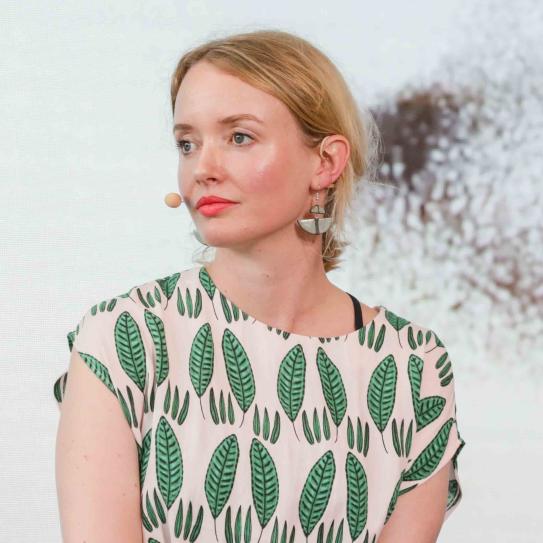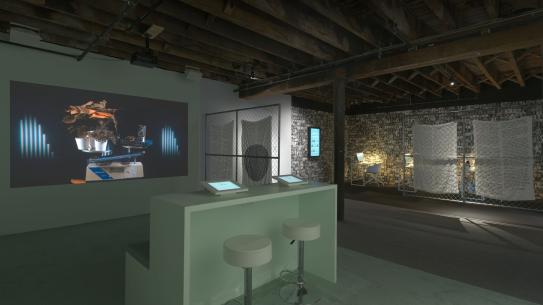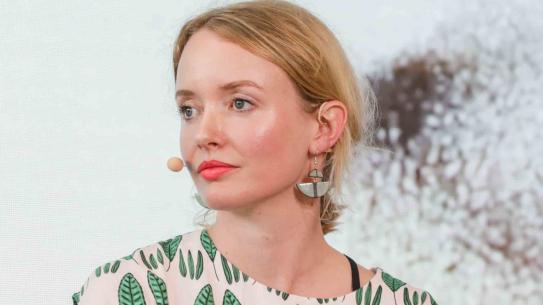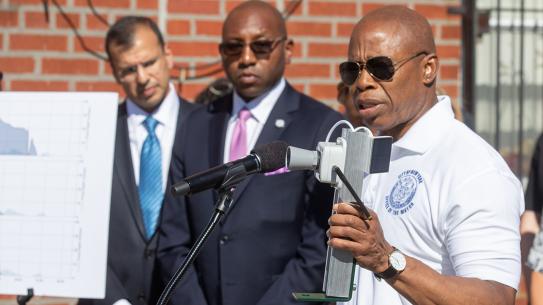
Tega Brain is an Australian-born artist and environmental engineer examining issues of ecology, data, automation, and infrastructure. She has created digital networks automated by environmental phenomena, schemes for obfuscating personal data, and a wildly popular, online smell-based dating service. Through these provisional systems she investigates how technologies orchestrate and reorchestrate agency. She has recently exhibited at the Smithsonian (Arts and Industries), the Vienna Biennale for Change, the Guangzhou Triennial and in venues like the Haus der Kulturen der Welt in Berlin and the Whitney Museum of Art, NYC. She is a 2023 Creative Capital Awardee and has also been a fellow at Eyebeam, Data & Society and the Australia Council for the Arts.
Her work has been widely discussed in the press including in the New York Times, Art in America, The Atlantic, NPR, Al Jazeera and The Guardian and in art and technology blogs like the Creators Project and Creative Applications. She has given talks and workshops at museums and festivals like EYEO, TedxSydney and the Sonar Festival.
Tega's first book is Code as Creative Medium, co-authored with Golan Levin and published with MIT Press. She earned her PhD in New Media Arts and Technology at the Australian National University, School of Art and Design and she serves on the board of the School for Poetic Computation.
Publications
Books:
Levin, Golan, and Tega Brain. Code as Creative Medium: A Handbook for Computational Art and Design. MIT Press, 2021.
Selected Recent Exhibitions:
FUTURES, Arts and Industry Building, Smithsonian Museum, Washington DC, November 2021 - Summer 2022.
There is No Planet B, Ars Electronica Museum, Linz, September 2021 - September 2022.
T Zero, Palazzo delle Esposizioni, Rome, October 12, 2021 - February 27, 2022.
Artport Commission, Whitney Museum of American Art, New York, 2020.
Uncanny Values, Vienna Biennale for Change, Museum of Applied Arts, Vienna, 2019.
The 6th Guangzhou Triennial: As We May Think- Feedforward, Guangdong Museum of Art, 2019.
Articles
Brain, T., A. Nathanson, and B. Piantella. (2022) "Solar protocol: Exploring energy-centered design." In Eighth Workshop on Computing Within Limits 2022, vol. 7, p. 21.
L. Nooney and Brain, T. (2019) “A ‘Speculative Pasts’ Pedagogy: Where Speculative Design Meets Historical Thinking.” Digital Creativity. 30(4).
Brain, T. (2018). "The Environment is not a System", APRJA, 7 (1).
Brain, T., Mattu, S., Abend, P. & Fuchs, M. (2016). 'I think it worked because Mercury was in the House of Jupiter!', Quantified Selves | Statistic Bodies, Digital Culture and Society.
Brain, T., & Newcombe, J. (2015). Exploring Environmental Stewardship Through Data-Driven Practices. In Media Art and the Urban Environment (pp. 47-61). Springer International Publishing.
Brain, T. and Miller, B. (2014). 'le_temps: Visualising Phenology from Public Image Databases', Techno-Ecologies II. Acoustic Space #12, vol. 2, no. 12.
Brain, T. (2013). Environmental data as sensory experience. ISEA International.
Essays:
Brain, T. and Lavine, S. (2021) The Battle to Control the Carbon Media Cycle, Ding Magazine.
Brain, T. (2019). New Phenologies, UnBag Magazine.
Brain, T. and Lavigne S. (2016) Simulating Enron, Rhizome Blog.
Awards
2023 Creative Capital Award, Offset
2022 Ars Electronica Award of Distinction, Perfect Sleep
2021 Eyebeam Rapid Response Program, Solar Protocol
2019 NYU Green Grant, Solar-Powered Media
2019 NYU Marron Grant, Flooding and the Urban Microbiome
2019 Humanities Lab, Radical Ecologies Lab
2018 Japanese Media Art Award Jury Selection, The Good Life




